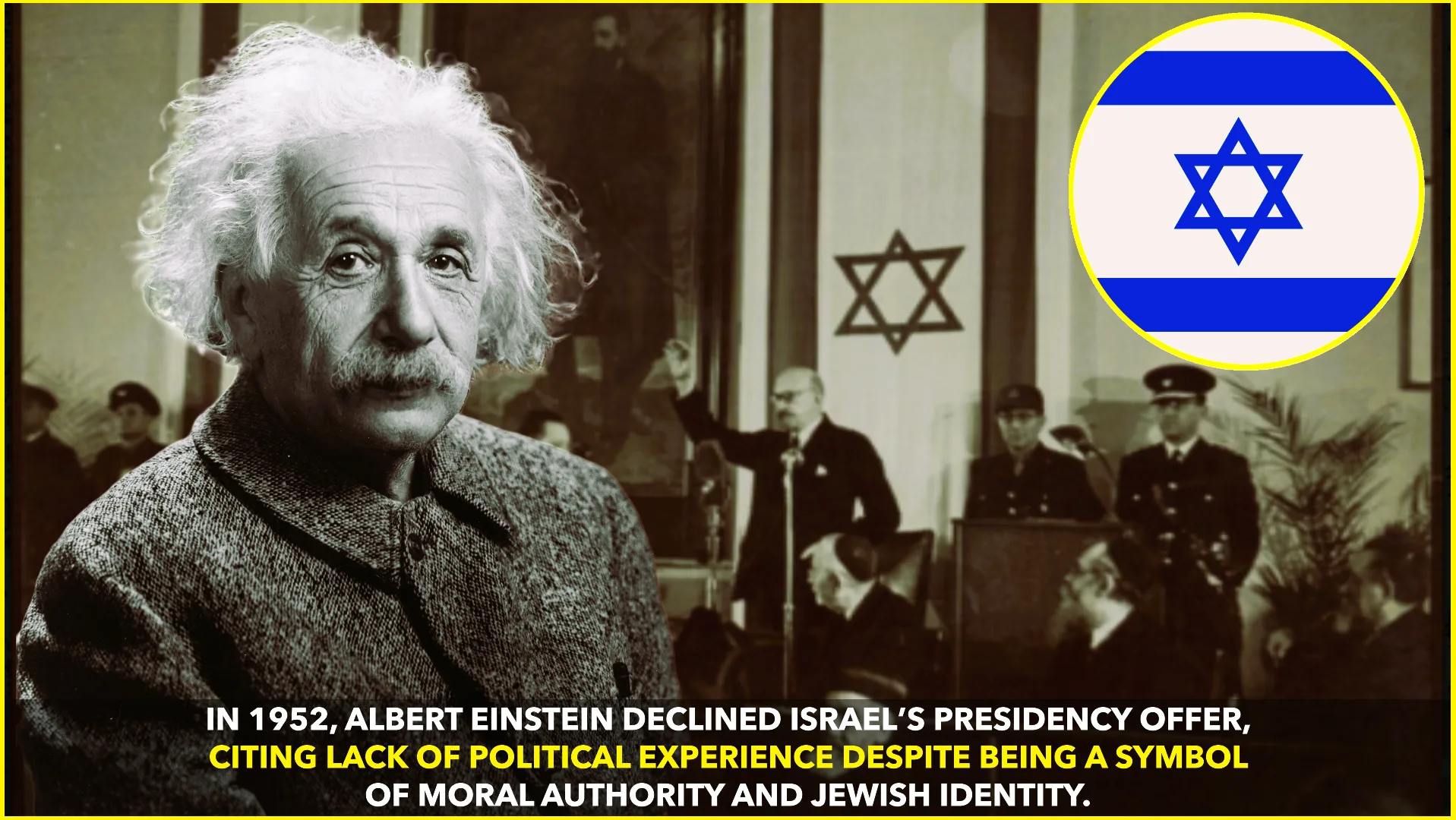When most people think of Albert Einstein, images of the wild-haired physicist who revolutionized modern science with his theory of relativity come to mind. Yet, one of the most fascinating and lesser-known chapters of his life goes beyond physics and into world politics. In 1952, Albert Einstein was offered the presidency of Israel following the death of the country’s first president, Chaim Weizmann. The offer was extraordinary, and Einstein’s refusal marked a “what-if” moment in history that continues to intrigue scholars and the public alike.
A Nation Seeking Moral Authority
After Chaim Weizmann, a respected statesman and scientist, passed away in November 1952, Israel’s government faced the challenge of appointing a successor. The young nation, only four years old at the time, wanted someone who could embody moral leadership and Jewish identity on the global stage. David Ben-Gurion, Israel’s first Prime Minister, believed that Einstein represented these ideals more than anyone else.
Einstein, already a global icon, was not only celebrated for his contributions to science but also for his deep moral convictions and humanitarian outlook. His open support for Zionism, his fundraising efforts for Jewish causes, and his outspoken stance against fascism and racial injustice made him a figure of unmatched moral authority.
The Historic Offer
On November 17, 1952, Abba Eban, Israel’s ambassador to the United States, officially delivered the offer to Einstein at his home in Princeton, New Jersey. The letter extended the honor of becoming the second president of Israel, a largely ceremonial role but one carrying immense symbolic weight.
The Israeli leadership saw Einstein as someone who could provide spiritual and moral legitimacy to the fledgling nation, reinforcing its identity at a time of great political and social challenges.
Einstein’s Humble Refusal
Einstein’s response was polite but firm. In a letter addressed to Abba Eban, he expressed gratitude for the honor but declined the offer. His reasoning was strikingly humble:
“I am deeply moved by the offer from our State of Israel and at once saddened and ashamed that I cannot accept it. All my life I have dealt with objective matters, hence I lack both the natural aptitude and the experience to deal properly with people and to exercise official functions.”
Einstein believed that leadership of a nation required skills he did not possess. Despite his international stature, he saw himself as a man of science, not of politics. This humility only deepened the respect people held for him.
A Symbol Beyond Politics
Einstein’s decision highlighted his awareness of personal limits and his refusal to take on a role he felt unprepared for, no matter how prestigious. The refusal also reinforced his broader worldview. He had long advocated for peace, disarmament, and global cooperation, often distancing himself from rigid nationalistic politics.
By stepping away from the presidency, Einstein preserved his image as a thinker and humanitarian whose influence transcended political borders. His choice arguably ensured that he remained a unifying figure for people across nations, rather than a divisive political leader.
The “What-If” of History
Historians often wonder how different things might have been if Einstein had accepted. Would his moral voice have changed Israel’s political trajectory? Or would the harsh realities of leadership have clashed with his idealism? While speculation abounds, what is clear is that Einstein’s refusal itself became part of his legacy.
It demonstrated a rare quality in public life: the ability to acknowledge one’s limitations, even in the face of the highest honors. In an age when power is often sought after relentlessly, Einstein’s act stands out as a lesson in humility and wisdom.
Legacy of the Moment
The presidency of Israel ultimately went to Yitzhak Ben-Zvi, a historian and Zionist activist, who served until his death in 1963. Meanwhile, Einstein remained in Princeton, continuing his work in theoretical physics and speaking out on issues of peace, education, and human rights until his death in 1955.
This episode reminds us that greatness is not only defined by the roles one accepts but also by the roles one declines. By refusing Israel’s presidency, Einstein reaffirmed his identity as a man dedicated to ideas, moral principles, and the pursuit of knowledge.










